Complete Solutions to C.U.Q of chapter MOTION IN A STRAIGHT LINE of Class 11 book with complete answers and questions
| Class 11 | PHYSICS |
| Chapter | MOTION IN A STRAIGHT LINE |
| NARAYANA | C.U.Q |
| Number Of Questions | 42 |
| Academic Year | 2023-24 |
The numerical ratio of displacement to the distance covered is always
View SolutionThe location of a particle is changed. What can we say about the displacement and distance covered by the particle?
View SolutionConsider the motion of the tip of the minute hand of a clock. In one hour
View SolutionThe ratio of the numerical values of the average velocity and average speed of a body is always.
View SolutionIf a particle moves in a circle describing equal angles in equal intervals of time, then the velocity vector.
View SolutionIn which of the following exmples of motion, can the body be considered approxinmately a point object :
(a) a railway carriage moving without jerks between two two stations.
(b) a mondey sistting on top of a man cycling smoothly on a circulat track. (c ) a spinning cricket ball that turns sharply on hitting the round . (d) a tumbling beake theat has slopped off the edge of a table ?
View SolutionAn object may have
(a). Varying speed without having varying velocity
(b). Varying velocity without having verying speed
(c). Non zero acceleration without having varying velocity
(d). Non zero acceleration without having varying speed.
View SolutionThe distance travelled by a particle in a straight line motion is directly proportional to `t^(1//2)`, where `t` is the time elapsed.
View SolutionIf a body starts from rest, the time in which it covers a particular displacement with uniform acceleration is :
View SolutionCheck up only the correct statement in the following.
View SolutionWhen the speed of a car is `u`, the minimum distance over which it can be stopped is `a`, If speed becomes nu, what will be the minimum distance over which it can be stopped during the same time?
View SolutionThe distance covered by a moving body is directly proportional to the square to the time. The acceleration of the body is
View SolutionMark the correct statements for a particle going on a straight line:
View Solution`B_(1)`,`B_(2)`, and `B_(3)`, are three balloons ascending with velocities `v`, `2v`, and `3v`, respectively, If a bomb is dropped from each when they are at the same height, then.
View SolutionThe distance moved by a freely falling body (starting from rest) during ` st, 2nd, 3rd,……nth` second of its motion are proportional to .
View SolutionTo reach the same height on the moon an on the earth, a body must be projected up with
View SolutionAt the maximum height of a body thrown vertically up
View SolutionA ball is dropped freely while another is thrown vertically downward with an initial velocity v from the same point simultaneously. After `t` second they are separated by a distance of
View SolutionThe average velocity of a freely falling body is numerically equal to half of the acceleration due to gravity. The velocity of the body as it reaches the ground is
View SolutionTwo bodies of different masses are dropped simultaneously from the top of a tower. If air resistance is proportional to the mass of the body then,
View SolutionA man standing in a lift falling under gravity releases a ball from his hand. As seen by him the ball
View SolutionA particles is dropped from certain height. The tame taken by it to fall through successive distance of 1 m each will be
View SolutionA body, freely falling under gravity will have uniform
View SolutionA person standing near the edge of the top of a building throws two balls A and B. The ball A is thrown vertically upward and B is thrown vertically downward with the same speed. The ball A hits the ground with speed `v_A` and the ball B hits the ground wiht a speed `v_B`. We have
View SolutionA lift is coming from `8th` floor and is just about to reach `4th` floor. Taking ground floor as origin and positive direction upwards for all quantities, which one of the following is correct ?
View SolutionChoose the correct statement:
View SolutionVelocity-time graph of a body thrown vertically up is
View SolutionVelocity-displacement graph of a freely falling body is
View SolutionDisplacement-time graph of a body projected vertically up is
View Solution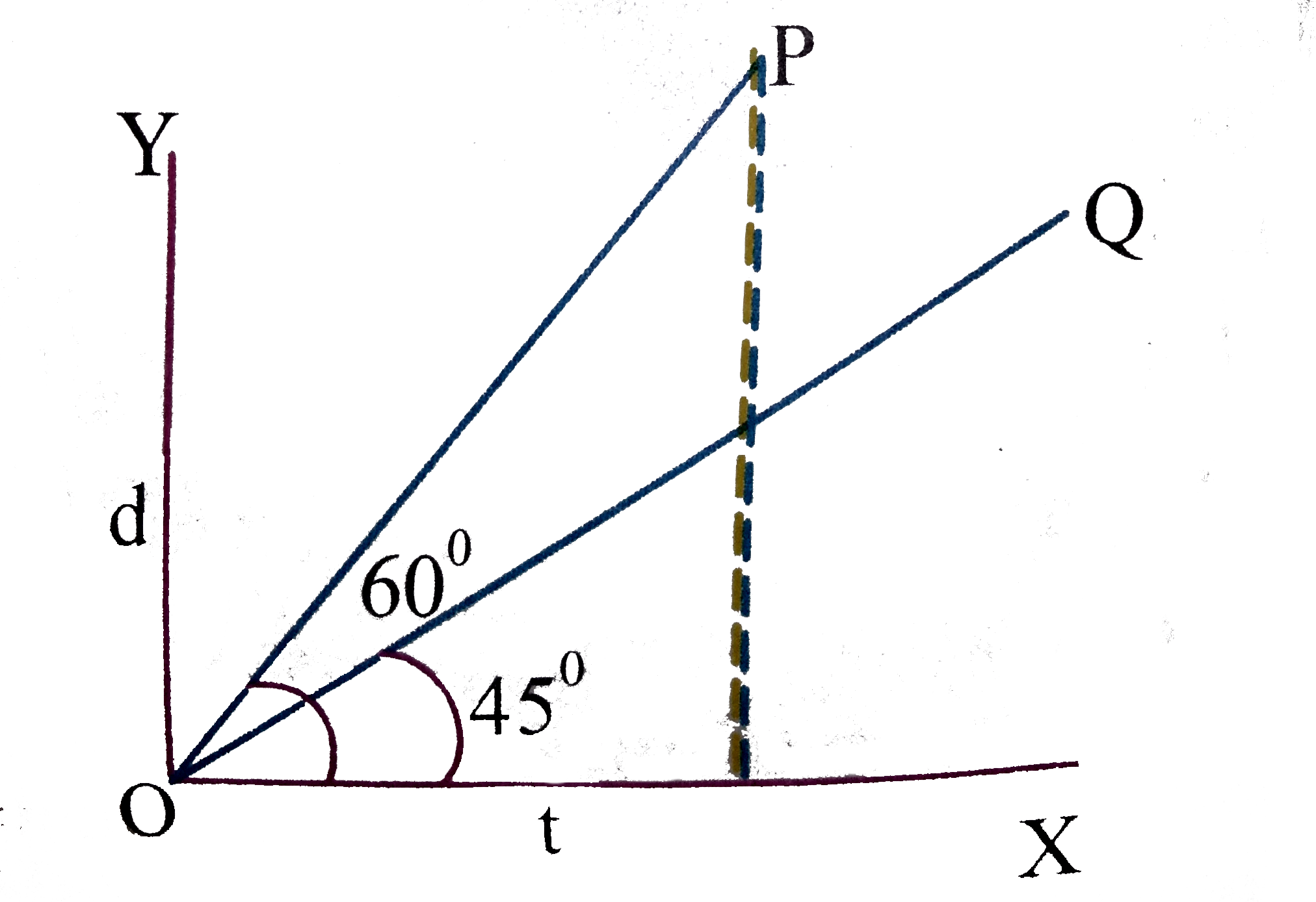
The displacement-time graphs of two bodies A and B are OP and OQ respectively. If `anglePOX` is `60^(@)` and `angleQOX` is `45^(@)` the ratio of the velocity of A to that of B is
View SolutionIf the distance travelled by a particle and corresponding time be laid off along y and x axes respectively, then the correct statement of the following is
View SolutionIn relation to a velocity-time graph
View SolutionThe displacment-time graph of a particle moving with respect to a reference point is a straight line
View SolutionFor a uniform motion.
View SolutionFigure shows the displacement time graph of a particle moving on the X-axis
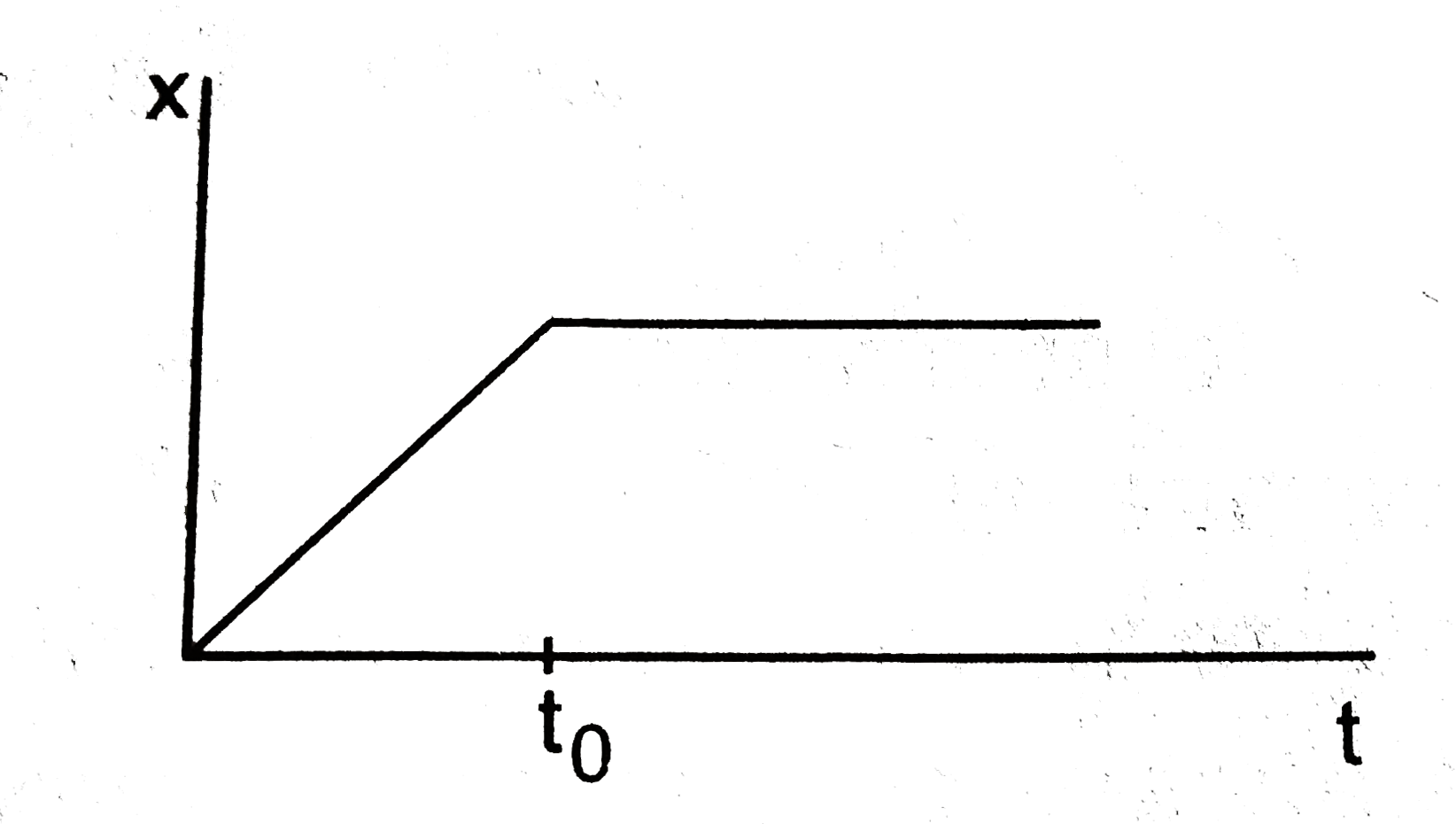
View Solution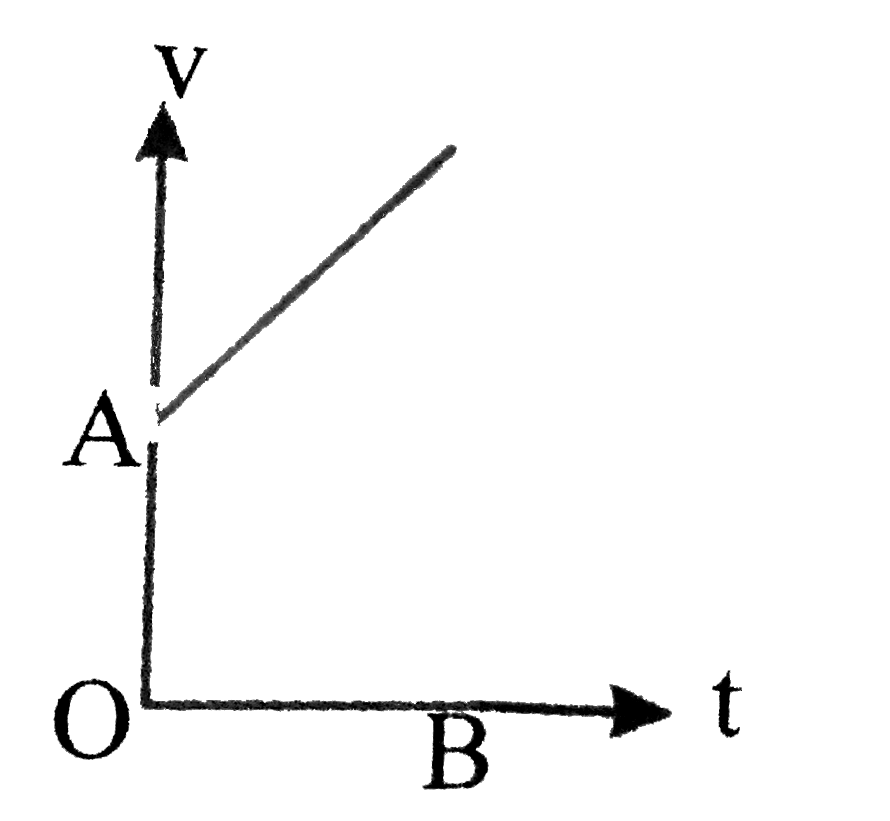
The variation of quantity A with quantity B. plotted in the fig. Describes the motion of a particle in a straight line.
(a) Quantity B may represent time.
(b) Quantity A is velocity if motion is uniform.
(c) Quantity A is displacement if motion is uniform
(d) Quantity A is velocity if motion is uniformly accelerated.
View SolutionThe displacement-time graph of moving particle is shown below
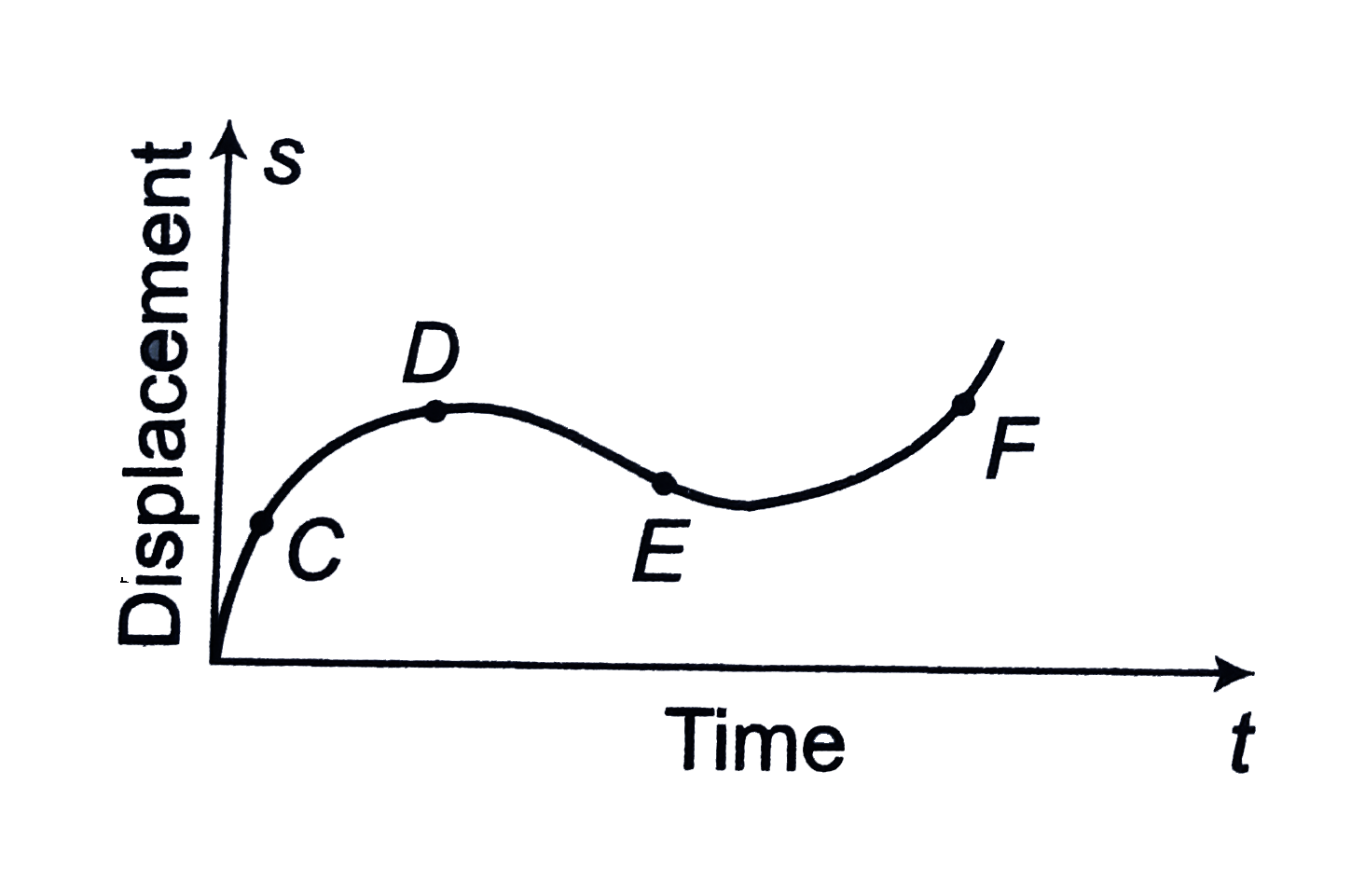
The instantaneous velocity of the particle in negative at the point
View Solution
Which of the following option is correct for the object having a staright line motion represented by the following graph?
View Solution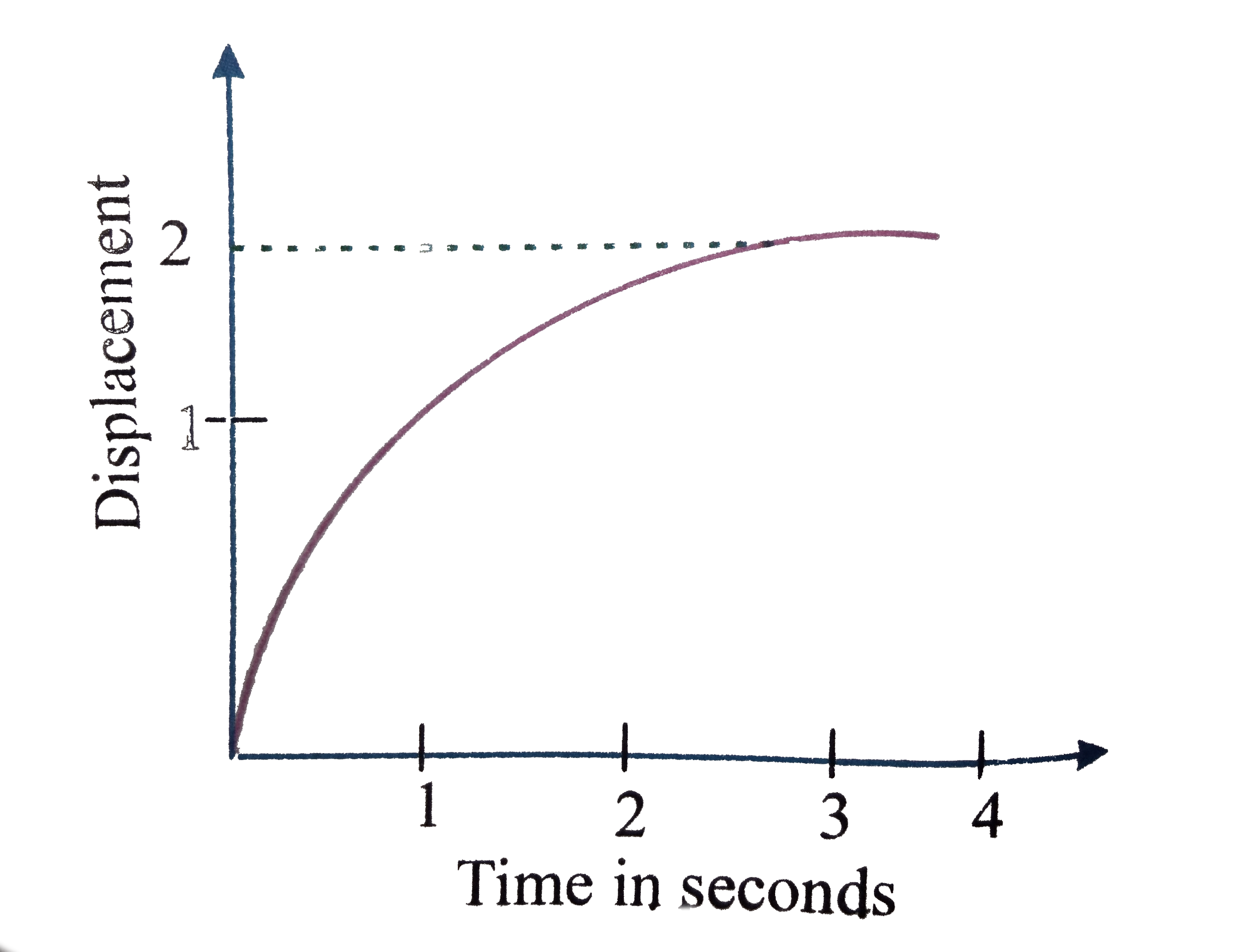
The displacement of a particle as a funtion of time is shown in the figure. The figure shows that
View SolutionA uniform moving cricket ball is turned back by hitting it with a bat for a very shart time interval. Show the variation of its acceleration with time. (Take acceleration in the back ward direction as positive).
View SolutionA small body is dropped from a rising balloon. A person A stands on ground, while another person N is on the balloon. Choose the correct statement : Immediately, after the body is released.
View SolutionSeeta is moving due east with a velocity of `V_(1) m//s` and geets iss moving due west with velocity of `V_(2) m//s`. The velocity of Seeta with respect to Geeta is
View Solution
C.U.Q questions and complete solutions for chapter MOTION IN A STRAIGHT LINE of NARAYANA PHYSICS (HINGLISH) of Class 11